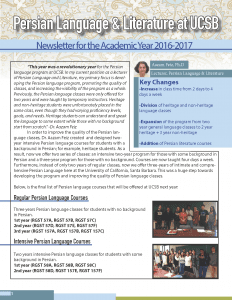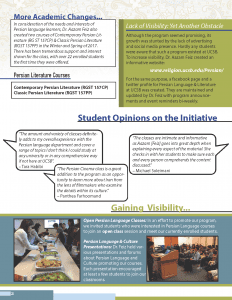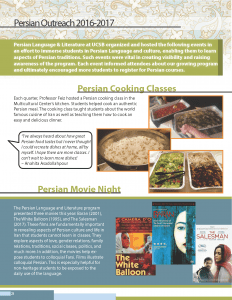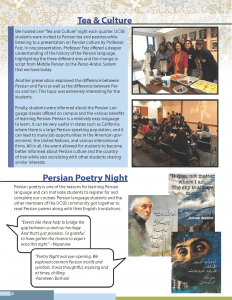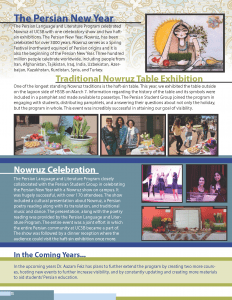“What makes Arabic at UCSB unique is that it is more than just a language course—it is an immersive journey into history, culture, and identity. Students come into the classroom with different motivations—some seeking to reconnect with their heritage, others looking to explore a new linguistic and cultural world. … I am especially proud of the supportive and engaging environment we create in the classroom. Through interactive discussions, cultural activities, and even sharing authentic homemade Egyptian food, students experience Arabic in a way that makes learning both rigorous and enjoyable.”
-Professor Wael Hegazy (UCSB Arabic Lecturer)
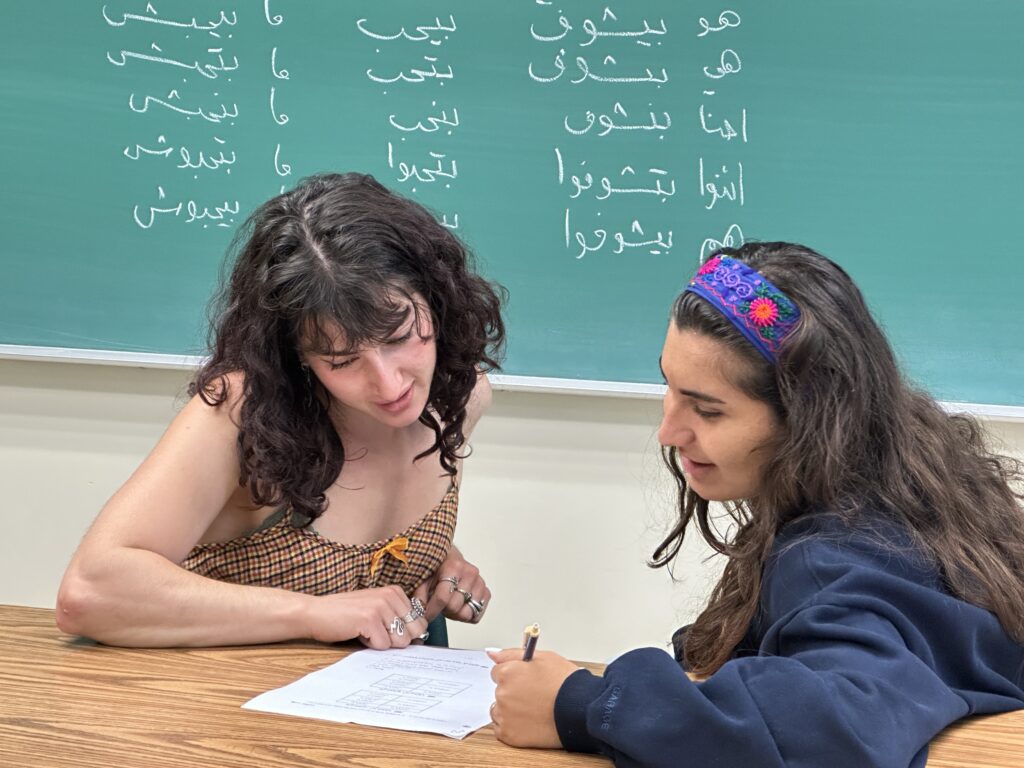
Arabic is the world’s third most widespread official language (an official language in 25 countries across the Middle East and Northern Africa) and has over 411 million native speakers. Arabic has a beautiful literary tradition, beginning with the Qur’an, the holy scripture of Muslims, and continuing with centuries of Middle Eastern poetry, philosophy, mathematical and scientific treaties, and novels. In addition to its literary quality, Arabic is an important language for business, government, and economics in the modern world.
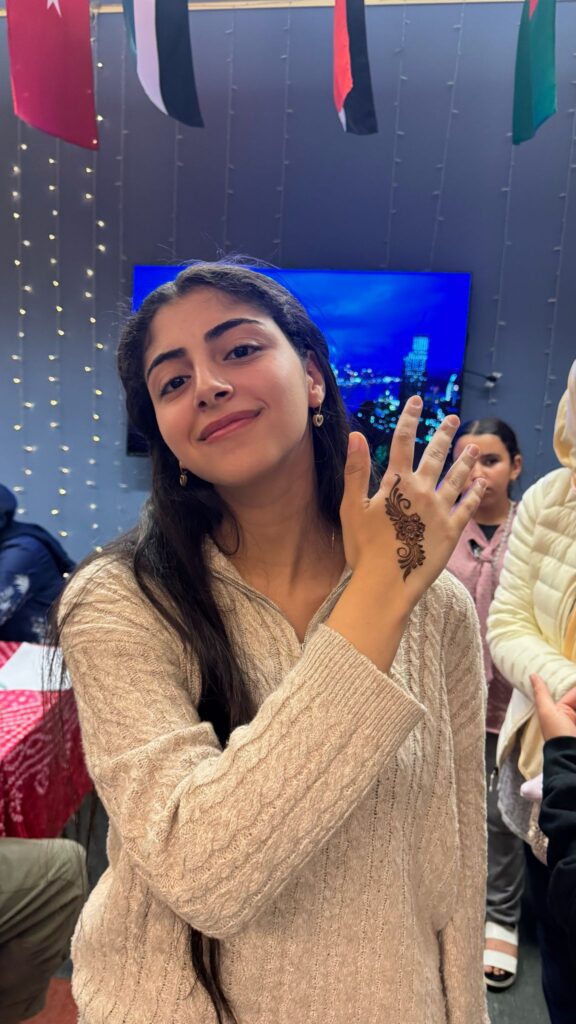
The Arabic series is taught over a three year period: one year of Elementary Arabic (RGST 10A, RGST 10B, and RGST 10C), one year of Intermediate Arabic (RGST 10D, RGST 10E, RGST 10F), and a final year of Advanced Arabic (RGST 148A, RGST 148B, RGST 148C). Depending on student demand, courses may also be offered in Egyptian Colloquial Arabic (RGST 10X, RGST 10Y, and RGST 10Z). These Arabic language courses prepare students to take courses exploring Arabic literature, including The Arabic Qur’an (RGST 186B), Readings in South Asian Islamic Texts (RGST 140DX), Readings in Pre-Modern Arabic (RGST 210), Classical Arabic Texts (RGST 288), Guided Readings in the History of Arabic Literature (RGST 289A), Guided Readings in Medieval Arabic Literature (RGST 289B), Guided Readings in Modern Arabic Literature (RGST 289C), and Non-Castilian Literatures of Spain (SPAN 112A).
Arabic language courses are taught by Dr. Wael Hegazy, a scholar of Islamic law, theology, and philosophy. For questions regarding the Arabic courses, placement, and other inquiries, please feel free to contact Dr. Hegazy at wael_hegazy@umail.ucsb.edu.
Student Testimonials
“What makes my Arabic class unique is the immersive approach professor Hegazy takes. In class, we have conversations in Arabic to practice speaking and listening, and the professor encourages us to try our best even if we make mistakes. Moreover, in addition to learning vocabulary and grammar, Professor Hegazy talks to us about the culture and history of the Arab world, and a couple times he even gave us delicious homemade Egyptian food! Thus, the classroom atmosphere is very supportive, which encourages me to keep improving.”
-Ilai Tamari (Arabic 10B student)
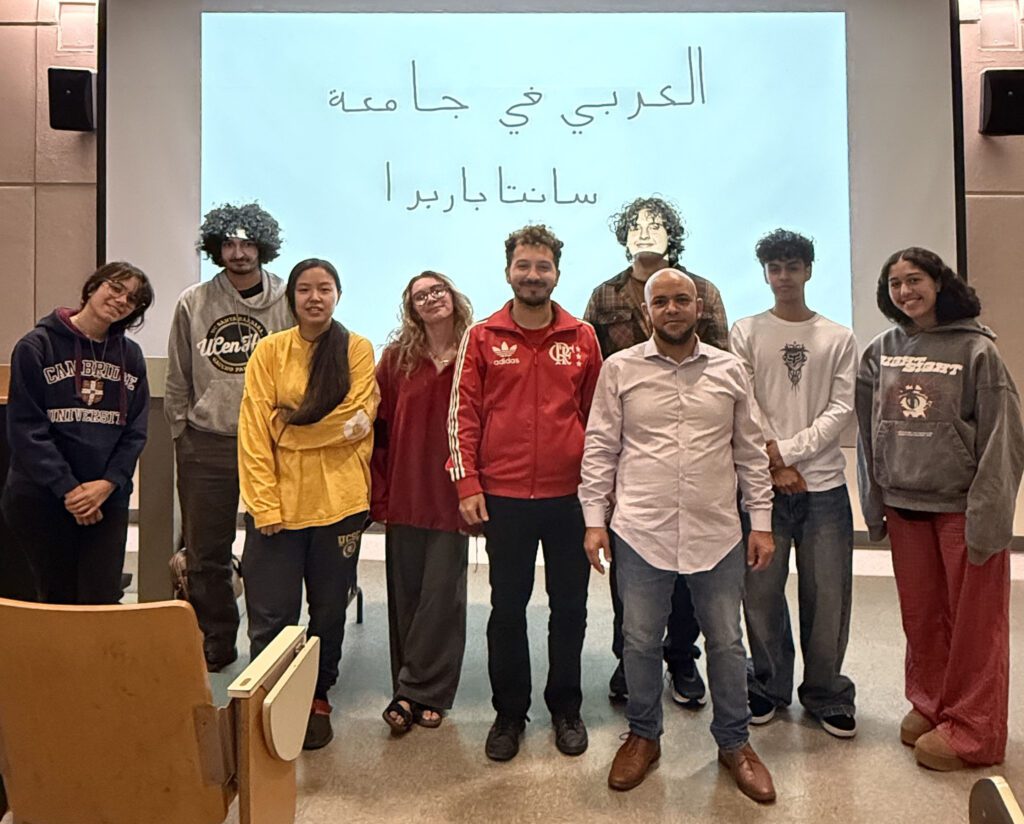
“[Studying Arabic] has shown me how similar we are, how we laugh at the same jokes, how we make the same metaphors, and how we choose to describe the things we love. Arabic cannot be acquired half-heartedly, it takes time and commitment, so you know that when you go into class, everyone is there to learn, not to just earn credits. Arabic is not a language you learn just to fulfill requirements. … Mastering Arabic will open the means of communication with millions of people across the globe, giving me not only the opportunity of exchange with others, but the ability to travel and live in corners of the globe that I did not think possible.”
-Diego Kroeff (Arabic 10B student)
“I started taking Arabic language classes during my second year, when I was still unsure of what I wanted to major in. My exposure to the language program led me to declare a major in Middle East Studies, and later add a double-major of History of Public Policy & Law. I thoroughly enjoy studying both of these majors, and I often find myself being able to relate to the content of various lectures that include Arabic words, phrases, and names. While studying the Arabic language, I have formed greater ties to my culture than I have ever felt before in my life.”
-Lina Elsawaf (Arabic 10E student)











